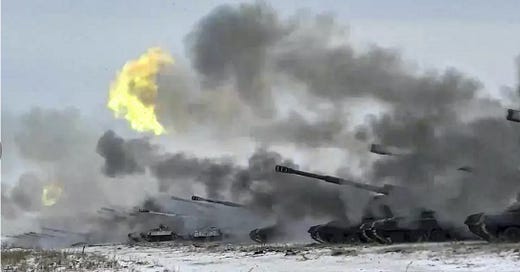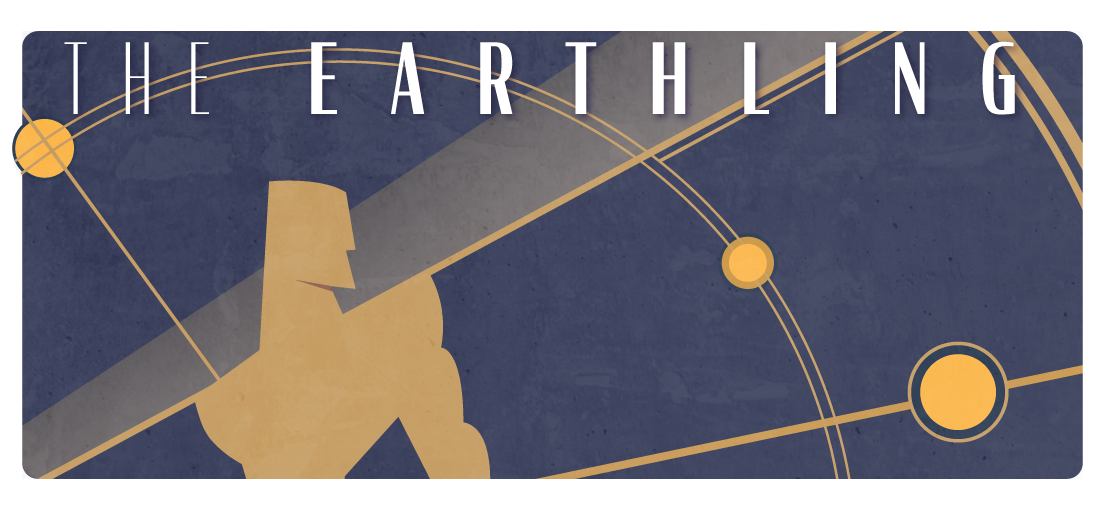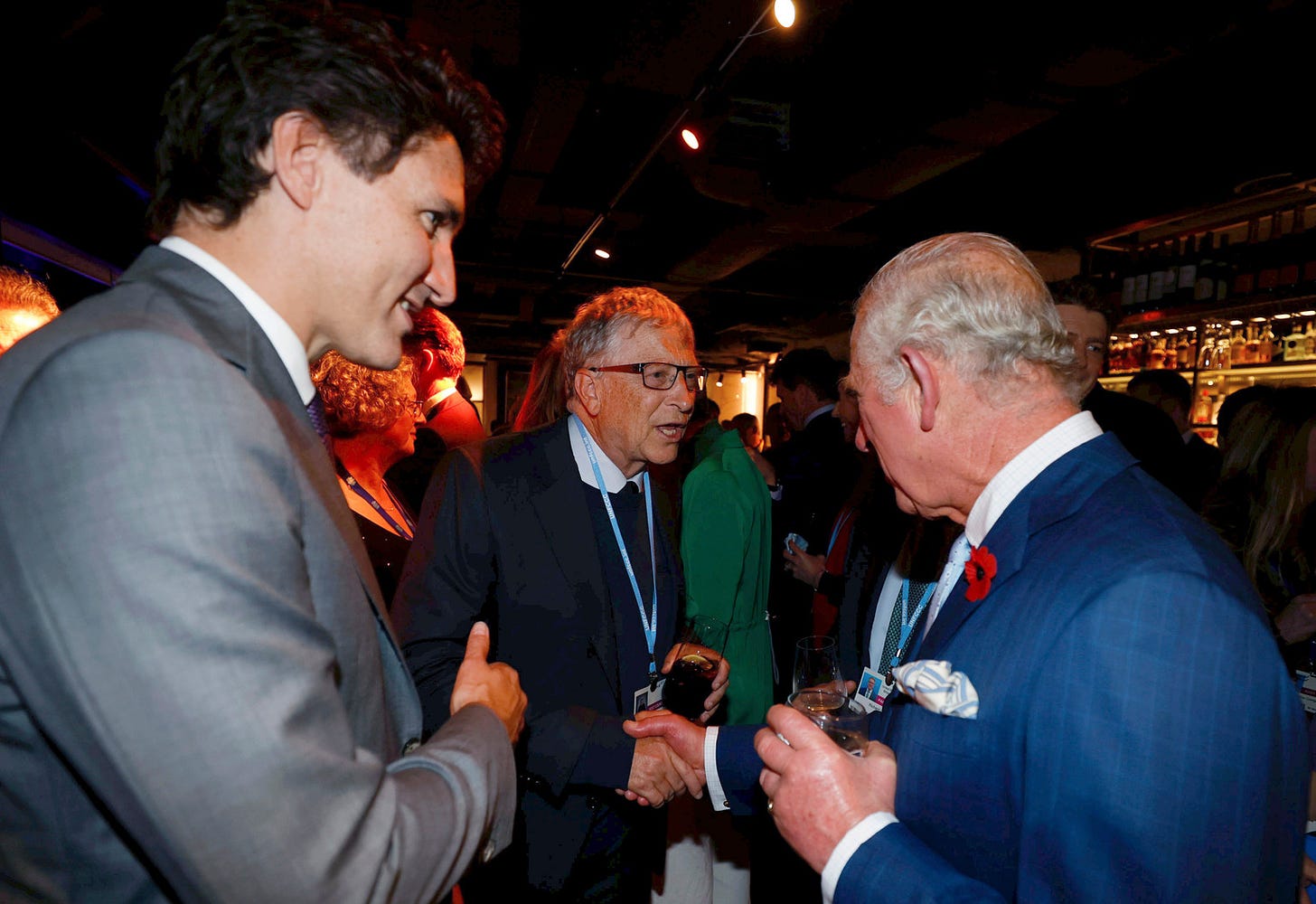Earthling: You can’t prevent a war after it starts
Plus: Is “eating locally” really eco-friendly? Is Bill Gates really good for public health? Is Biden really good for democracy? and more!
This week brought a declaration of victory in the war over the causes of the Ukraine war. A Reuters report about secret Russia-Ukraine negotiations held early this year was hailed as slam-dunk evidence that Russia’s invasion wasn’t, as Putin had claimed, about Ukraine’s intention to join NATO.
For example, famous Twitter influencer Noah Smith tweeted this about the Reuters piece to his quarter of a million followers: “All the Russia apologists who say that Ukraine or NATO could have avoided this war should read this. Putin was dead set on invasion and conquest.”
That’s one interpretation. Another interpretation is this: The Reuters piece sheds little light on the question of whether accommodating Russia on the NATO issue could have prevented the war, and the reason people like Smith think otherwise lies in some combination of (1) a misleadingly dramatic lead paragraph; (2) confirmation bias; and (3) the magical power of social media.
Here is the lead paragraph of the Reuters piece:
Vladimir Putin's chief envoy on Ukraine told the Russian leader as the war began that he had struck a provisional deal with Kyiv that would satisfy Russia's demand that Ukraine stay out of NATO, but Putin rejected it and pressed ahead with his military campaign, according to three people close to the Russian leadership.
You could be excused for thinking that this means the provisional deal was struck before Putin invaded Ukraine. After all, that’s the most logical inference to draw from a sentence reporting that “as the war began” a deal “had” been struck.
But this logical inference would be mistaken. Eight paragraphs into the piece—several paragraphs after Noah Smith quit reading, perhaps—we finally get to the fine print:
Two of the three sources said a push to get the deal finalized occurred immediately after Russia's Feb. 24 invasion. Within days, Kozak [the envoy] believed he had Ukraine's agreement to the main terms Russia had been seeking and recommended to Putin that he sign an agreement, the sources said.
The third source, it’s true, disagreed with the first two, contending that Putin rejected the deal before the invasion. But that source “was told about the events by people who were briefed on the discussions between Kozak and Putin”—and so is at least two degrees of separation from the action and maybe more, depending on who the “people who were briefed” were briefed by. All told, the balance of evidence in this piece suggests that this tentative agreement on “the main terms” Russia had sought was reached some number of days (three, seven, ten?) after the invasion.
Now, if indeed Putin rejected a Ukrainian offer to stay out of NATO that was made days into the invasion, that’s certainly worth knowing. On the other hand, it doesn’t exactly revolutionize our understanding of things. We already knew that Zelensky said publicly, the day after the invasion, that he was willing to talk about the NATO question—and Putin didn’t seem to pick up on the offer.
There’s a reason that this implicit Putin rebuff wasn’t taken (by people of sound judgment, at least) as proof that the invasion itself hadn’t been about the NATO issue. Obviously, once you’ve actually launched a massive invasion, there are all kinds of reasons you might not want to put it on pause to nail down a deal you would have accepted before the invasion. For example, maybe Putin felt that, now that he was actually gobbling up Ukrainian territory, he could get more concessions than he was demanding before the invasion. Indeed, maybe he took Ukraine’s sudden change of tune on the NATO question as a sign that he was in the driver’s seat.
And accommodating Putin on the NATO question would indeed have been a change of tune. Only five days before the invasion, according to the Wall Street Journal, Zelensky had rejected the idea of forswearing NATO membership even if the West gave Ukraine security guarantees. And the Biden administration had refused to discuss the NATO question with Russia, leaving the matter up to Ukraine.
The question of Putin’s motivation for invading Ukraine is a complex and unresolved one. To seriously grapple with it is to far exceed the apparent tolerance of Noah Smith—and many others on his side of the debate—for nuance. Instead of grappling with it, they succumb to confirmation bias, grabbing any half truths or untruths that float by and broadcasting them to their followers. (The Reuters piece’s social media preview—automatically invoked if you tweet the piece’s URL—featured the misleading language of its lead paragraph and was thus tailor made for the wondrous synergy of social media and confirmation bias.) And they may, like Smith, throw in a McCarthyite line about “Russia apologists,” thus giving their tweets more juice.
As a result of all this, serious attempts to debate a very important question are smothered in misinformation and name calling. My own favorite example of an unstoppable piece of misinformation is the conventionally accepted claim—made by Josh Marshall and Julia Ioffe among others—that Putin “barely mentioned” NATO in a pre-invasion speech that in fact included no fewer than 40 mentions of NATO.
And if you ask, “Why do so many journalists who have lots of followers seem so irresponsible?”—the correct answer may be another question: How do you think they got lots of followers in the first place?
Note: Paid subscribers can listen to two new audio essays:
Salman Rushdie and the clash of civilizations (published August 17)
Why we’re so clueless about Putin (published September 12)
An extensively researched report by Politico finds that the global response to the Covid-19 pandemic was deeply influenced by four non-governmental organizations, including the Bill and Melinda Gates Foundation. The organizations collectively spent around $10 billion and enjoyed, thanks to intense lobbying campaigns, access to top officials in the US, Europe, and the World Health Organization.
While the organizations’ leaders pledged to close the vaccine gap between rich and poor countries, that aspiration wasn’t realized, as low-income nations went without vaccines during the worst peaks of the pandemic. Part of the problem, some activists say, was the Gates Foundation’s resistance to lifting intellectual property protections.
The authors say the groups deserve credit for contributing substantial financial resources and expertise to fighting Covid-19. But the report documents how powerful NGOS, in assuming public health duties normally performed by elected governments, exerted a possibly unprecedented amount of influence on global policy.
Which foreign policy issues do American voters rank as the five most important? New data from Morning Consult helps answer that question.
Last on the list? “Upholding democracy globally.” That could be bad news for President Biden, since that issue seems to be first on his foreign policy agenda, at least to judge by his rhetoric. It could also help explain why only a quarter of Americans say Russia’s invasion of Ukraine is a top five foreign policy issue.
The Senate Foreign Relations Committee advanced a bill that could inflame tensions with China. The Taiwan Policy Act provides Taiwan $6.5 billion in military aid and sets up sanctions that would be triggered by Chinese aggression against the island.
An earlier draft of the bill had designated Taiwan a non-NATO ally, but after pushback from the Biden administration the committee tweaked the language. The bill now says that “Taiwan shall be treated as though it were designated a major non-NATO ally.” Beijing said the bill would “greatly shake the political foundation of China-US relations.”
Even the generally hawkish Sen. Mitt Romney had reservations about the legislation:









